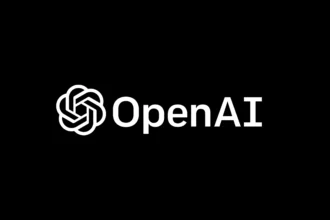What is OpenAI’s Mission Statement?
In a world where artificial intelligence (AI) is etched into the very fabric of our daily lives, it’s essential to understand the motives behind its development. At the forefront of this transformational journey is OpenAI, an organization that has grabbed headlines for its groundbreaking artificial intelligence projects. But what exactly is OpenAI’s mission statement, and what does it mean for us?
The heart of OpenAI’s mission statement reads: “to ensure that artificial general intelligence benefits all of humanity.” This succinctly encapsulates the company’s comprehensive philosophy towards AI development. Before we dive deeper into what this means, let’s unpack the components of this mission statement, a true beacon for AI ethics and innovation.
Table of Contents
ToggleThe Pursuit of Artificial General Intelligence
When OpenAI mentions “artificial general intelligence” (AGI), it’s referring to a hypothetical type of AI that possesses the ability to understand, learn, and apply intelligence across a wide range of tasks, much like a human being. Whereas current AI systems are typically designed for specific applications—think facial recognition, chatbots, even self-driving cars—AGI would essentially bring everything under one roof, functioning with a breadth of understanding and cognitive capacity comparable to humans.
The pursuit of AGI is both thrilling and daunting. On one hand, the potential benefits are astronomical. Imagine an AI that can assist in solving climate change, aiding in complex medical diagnoses, or even innovating entirely new fields of science. The possibilities are endless. However, the darker side lurks cautionary tales about control, ethical boundaries, security, and potential misuse of such advanced technology.
The Emphasis on Benefit for All of Humanity
The latter part of the mission statement prompts a vital conversation: how does OpenAI plan to make sure that the benefits of AGI are shared broadly and not monopolized by a select few?
The key here is collaboration, transparency, and responsibility. OpenAI has publicly committed to sharing its research findings and code. The act of sharing not only demystifies the technology but also invites collaboration from various entities—governments, academic institutions, and private citizens alike—to weigh in on the ethics and implications of AI development. This is where the idea of “benefitting all of humanity” truly comes into play.
For instance, a partnership with organizations, policymakers, and the general public can ensure that diverse perspectives and values are integrated into how AGI is shaped, ultimately leading to more equitable outcomes. OpenAI envisions a world where technological advancements are a collective triumph rather than the exclusive purview of a few tech giants.
A Focus on Safety and Ethical Guidelines
Delving deeper into the mission statement, another cornerstone of OpenAI’s objectives is safety. The organization recognizes that with great power comes great responsibility—a phrase many of us recall from superhero stories, but one that holds substantial weight in the realm of technology as well.
OpenAI has implemented safety protocols and ethical guidelines as crucial aspects of its research. This includes robust testing of AI functionalities, monitoring for unintended consequences, and a commitment to prevent the misuse of AI technologies for malicious purposes. By investigating the potential risks associated with AGI, OpenAI is intentionally creating frameworks designed to minimize harm.
This aligns with the broader vision of advocating for safer AI, ensuring that the knock-on effects of AI systems on jobs, social structures, and even mental health are all carefully evaluated and addressed. After all, what’s the point of developing a grand technology if it inadvertently leads to societal issues? OpenAI seeks to navigate this complex landscape carefully, balancing innovation with responsibility.
Community Engagement and Adoption of AI for Good
OpenAI’s mission resonates even further as it opens the floor to community engagement. The organization encourages input, discussion, and feedback from the public on various AI technologies and practices. By doing so, it fosters a culture of transparency that allows individuals to feel involved and aware of how AI impacts them.
Furthermore, OpenAI is keenly aware that the benefits of advanced AI technologies should extend beyond mere economic gains. The organization actively promotes the use of AI for social good. Programs supporting disaster response, health, education, and climate change are prime examples of how OpenAI is trying to channel its resources and technical skills toward meaningful causes. For instance, imagine an AI system that can predict natural disasters accurately, allowing timely evacuations and potentially saving countless lives. Efforts like these reflect OpenAI’s commitment not just to push boundaries but also to carry a torch that lights the way toward solving global challenges.
A Commitment to Lifelong Learning and Adaptation
This mission statement isn’t just a static declaration; it is an evolving philosophy built on the idea of lifelong learning and adaptability. As technology progresses and societal norms shift, OpenAI knows that it must continuously assess its practices and mission to stay true to its goals.
The organization is firmly rooted in the beliefs of iterative improvement. It understands that there can be missteps along the journey and is open to re-evaluating protocols and strategies based on feedback and new findings. Learning from mistakes is crucial for any development, and OpenAI embraces this as part of its ethos. By adapting in real-time, the company can remain resilient amidst advancements and continue to serve humanity in meaningful ways.
Collaborative Ecosystem: Partners, Enthusiasts, and Policymakers
OpenAI firmly believes that it cannot operate in isolation. Its mission statement calls for building a collaborative ecosystem comprising various stakeholders, ranging from researchers to policymakers, businesses, and everyday tech users. This diversified team approach ensures that multiple viewpoints contribute to discussions about the future of AI and its chemistry within society.
By welcoming diverse inputs into the fold, OpenAI transforms its growth narrative. This is why the organization emphasizes outreach and education as critical components of its model. From sharing resources to hosting informative workshops that demystify AI technology, OpenAI works tirelessly to equip an array of community members with knowledge, thus leveraging collective intelligence and ingenuity.
Conclusion: A Vision for the Future
In summation, OpenAI’s mission statement—“to ensure that artificial general intelligence benefits all of humanity”—is more than just a catchy slogan; it is a recipe for vision, responsibility, safety, and hope. It reflects a transformative ideology where power and advancements in technology are harnessed to uplift society as a whole and to seek advantages that transcend traditional economic boundaries.
As AI continues to evolve, the ethos driven by OpenAI’s mission stands as a reminder: that progress must include all voices, prioritize safety, and keep the broader community engaged. Now, with that lofty aim shining brightly, the eyes of the world will watch as OpenAI shapes our technological landscape and, in doing so, attempts to write a new chapter for humanity itself.



